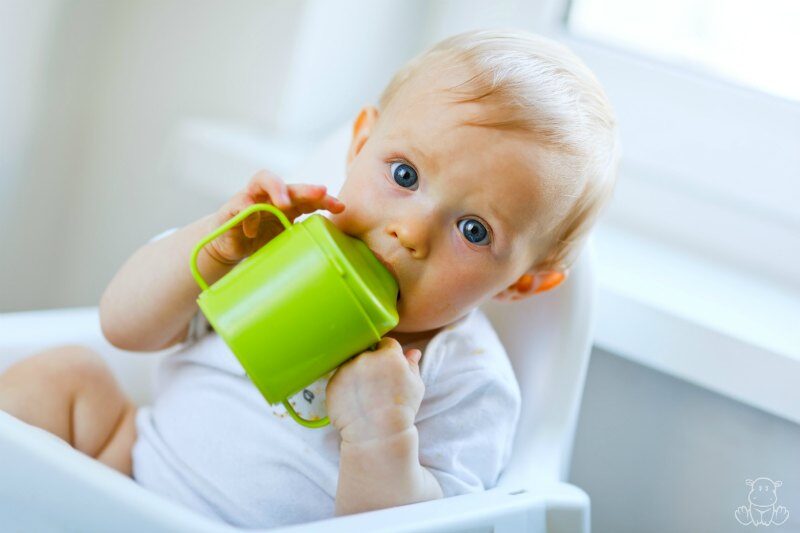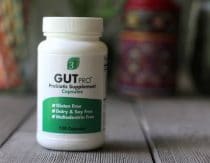
So, you’re probably normal. When your sweet babe began placing every sort of toy inside her mouth EXCEPT the toys you bought for that specific purpose, you probably didn’t go online and price the XRF machines so that you could scan random objects for lead. Even if it was your first baby, that would be just nuts.
Ahem.
Fortunately, we don’t live in a country where profits are regularly put before human health. As soon as the devastating health effects of bisphenol A were discovered, the U.S. banned it outright.
Oh wait, I have that mixed up. China, Malaysia, Canada, and the European Union all had the sense to ban bisphenol A (BPA) for certain uses before the FDA finally caved to pressure and banned it in baby bottles and cups. (source)
The FDA enacted the ban without admitting BPA is harmful in any way. In their words, they were just “codifying” the general trend away from BPA-infused products. According to a 2010 study, products touting the “BPA-free” label went up 577% in just the twelve months between 2009-2010!
Don’t breathe that sigh of relief yet, though. Let’s set aside for a moment that BPA is still regularly used in children’s toys, food packaging, dental fillings and a variety of other products. There’s something else going on here.
An “Alphabet Soup” Of Toxic Bisphenol
According to this article, “Now that consumers are refusing to buy BPA-containing containers manufacturers have had no choice but to oblige with seemingly bisphenol-free alternatives. Ironically, BPA is used to make Sippy Cups (and polycarbonate) shatterproof, and therefore ‘safer.’ But, instead of manufacturers actually removing the danger in BPA-free labeled products, many are capitalizing on this marketing opportunity by removing only the perception of danger, opting to substitute BPA for equally toxic members of the bisphenol chemical class.”
Yep, that’s right. There’s basically an “alphabetic soup of toxic bisphenols in consumer goods,” says this article, which goes on to list them as:
- Bisphenol A
- Bisphenol AB
- Bisphenol AF
- Bisphenol B
- Bisphenol BP
- Bisphenol C
- Bisphenol E
- Bisphenol F
- Bisphenol G
- Bisphenol M
- Bisphenol S
- Bisphenol P
- Bisphenol PH
- Bisphenol TMC
- Bisphenol Z0
In a study conducted last year, researchers found that manufacturers are quietly replacing bisphenol A with bisphenol S (BPS) in many products. Can these products be labeled as BPA-free? Yes they can. Maybe that’s why another study conducted last year found that “Bisphenol S concentrations in urine from the citizens of 8 countries were within the same concentration ranges as Bisphenol A levels reported by the same research group in the year before.[4]” In other words, BPA levels dropped, but almost at the exact same rate that BPS levels rose. (Here’s a link to the original study)
Other sources have confirmed that – at least in Europe – “BPA-free” baby bottles now contain BPS. (source) As far as I know U.S. manufacturers have not revealed what they’re using.
How Safe Is BPS?
Not a lot of studies have been done, but preliminary research indicates that it may actually be WORSE than BPA! Here’s why. From the studies we have, it appears that BPS has about the same level of estrogenic activity. (source 1, source 2) So far, the estrogenic activity of BPA has been linked to:
- Reproductive disorders (source)
- Male impotence (source)
- Heart disease in adults, especially women (source 1, source2)
- Altered sex hormones in men (source)
- Type 2 diabetes (diabetes)
- Impaired brain function, memory, learning (source)
- Depression (source)
- Breast cancer (source)
- Asthma (source)
What makes BPS potentially worse is that research indicates it takes longer to biodegrade. In other words, it may to stay with us longer and therefore have a more lasting effect. (source)
Coca-Cola Says Consumers Should Have Known They Were Lying
Recently a non-profit public interest group sued Coca-Cola on the grounds that it’s Vitamin Water product makes unwarranted health claims – for example, ads for Vitaminwater used slogans like, “Kiss me, I’m healthy!”
To defend itself, Coca-Cola’s lawyers contended that “no consumer could reasonably be misled into thinking Vitaminwater was a healthy beverage.” (source)
So basically, their defense is that we should have known they were lying? How very reassuring.
As parents, I think a healthy dose of skepticism is needed regarding manufacturers claims. Labels can mislead, and untested chemicals are usually presumed to be safe until a mountain of evidence proves otherwise. For example, did you know that marines were once told that Agent Orange was essentially “so safe you can drink it”? (source)
Do I Live My Life In Fear Of Plastic?
No! My kids have plastic toys and I do not call manufacturers about the composition of every single one. However, I do my best avoid plastic whenever possible, opting instead for glass water bottles & food storage containers, fresh foods instead of canned items, homemade glass spray bottles for cleaning supplies, etc. And of course, I don’t rely on labels to tell me everything I need to know!
Are you surprised that BPA-free products can still contain bisphenol?
What do you think of manufacturers sneaky labeling practices?
Photo credit: Andrew Seaman, Monkey Mash Button




